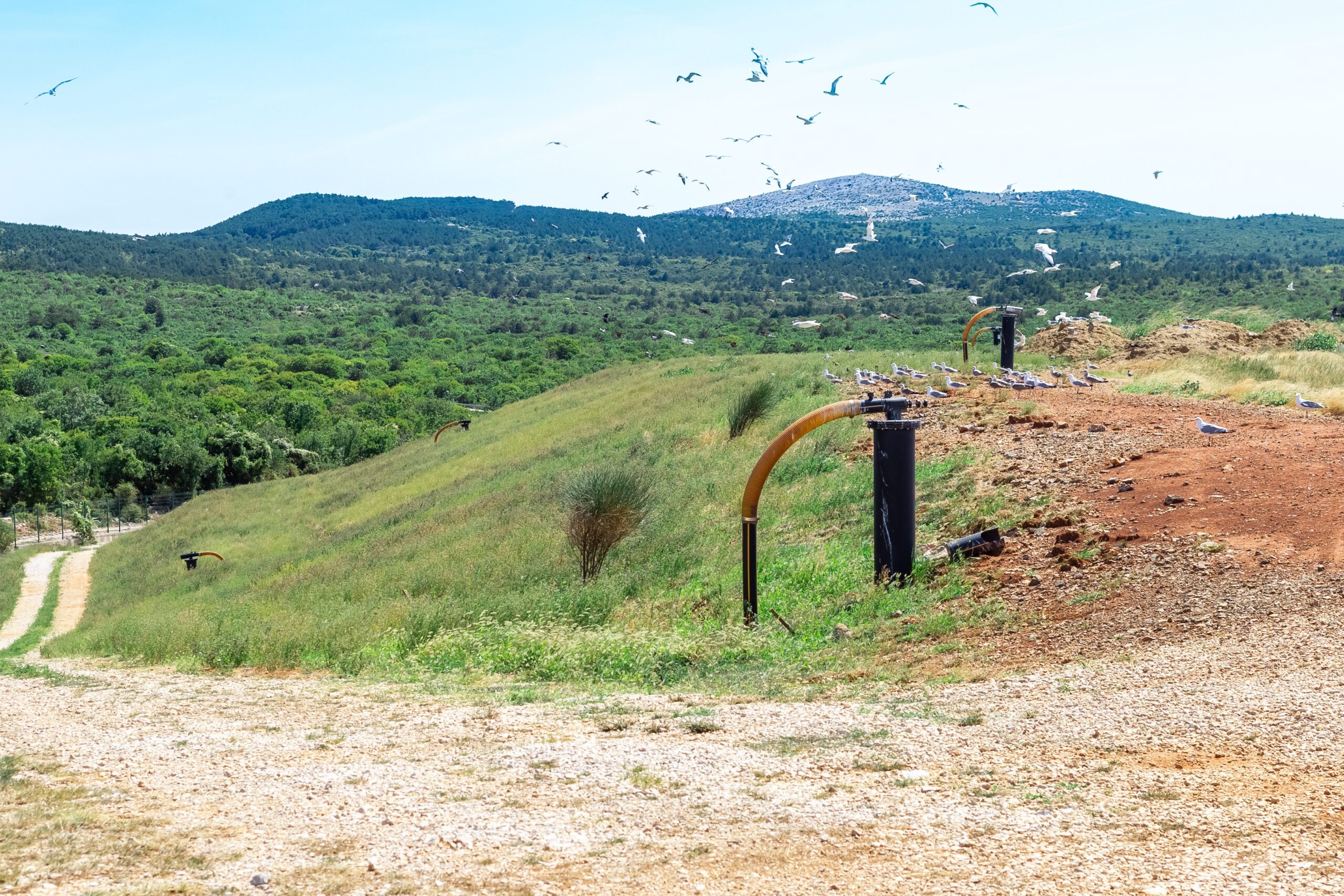Breaking Bonds: A Scholar’s Innovative Approach to PFAS Destruction
The Environmental Research & Education Foundation (EREF) is excited to welcome Laura DiGiacomo as 2024’s Lonnie Poole Scholar.

Laura’s research on the destruction of per- and polyfluoroalkyl substances (PFAS) in landfill leachate offers a potential new way of addressing the persistent environmental challenge posed by these chemicals. By employing advanced reduction processes (ARPs) that target PFAS at their molecular level, her work aims to neutralize these toxic pollutants, including the more elusive short-chain varieties known for their solubility and mobility and that tend to be present at higher concentrations in leachate. This innovative approach not only hopes to break down PFAS into non-toxic forms but could also set a precedent for developing more effective and efficient methods to combat PFAS contamination stemming from consumer products and industrial uses. The research is not meant to replace any other PFAS destruction research. In Laura’s words, “No problem is solved alone, and furthermore it seems clear that no singular technology will ‘solve’ all PFAS pollution.”
Laura’s journey into the complex world of PFAS destruction research is one of both academic pursuit and a deeply personal commitment to environmental stewardship and public health. Growing up with an innate curiosity about the natural world and how human activities intersect with it, Laura found herself drawn to the challenges posed by persistent pollutants like PFAS. Her resolve to tackle these issues was further solidified during her formative years at Clemson University, where she was part of a vibrant research community under Dr. Ezra Cates. It was here, amidst the collaborative hum of her lab group, that Laura’s path became clear. The group’s dedication to developing economically viable and environmentally sound treatment processes resonated with her own values, igniting a passion for addressing daunting environmental challenges like PFAS.
Laura’s academic journey is intertwined with professional experiences in water and wastewater engineering consulting. This blend of theoretical knowledge and practical application provided a unique lens through which she viewed the challenges faced by utilities in managing PFAS contamination. The wisdom and encouragement of mentors, both in academia and the industry, equipped Laura with the perspective and confidence needed to forge ahead in this demanding field. These mentors not only imparted technical knowledge but also instilled a sense of duty towards contributing to societal welfare through engineering solutions.
Looking ahead, Laura envisions a career where her work in environmental engineering makes a tangible difference in people’s lives. She sees the potential for engineering not just as a profession but as a platform for societal change, combining technical excellence with ethical practices and effective communication. Her aspirations also include a teaching role, hoping to inspire the next generation of engineers and scientists to tackle the environmental challenges of their time with the same fervor and commitment she brings to her work on PFAS.
In a world where harmful chemical exposure can come from a burger wrapper, a smear of sunscreen, or dust on the floor, Laura’s research offers a glimmer of hope. Through EREF’s backing, her work exemplifies the kind of forward-thinking research that can lead to real-world solutions for the pervasive issue of PFAS pollution, reinforcing the foundation’s role in fostering environmental stewardship and education.



